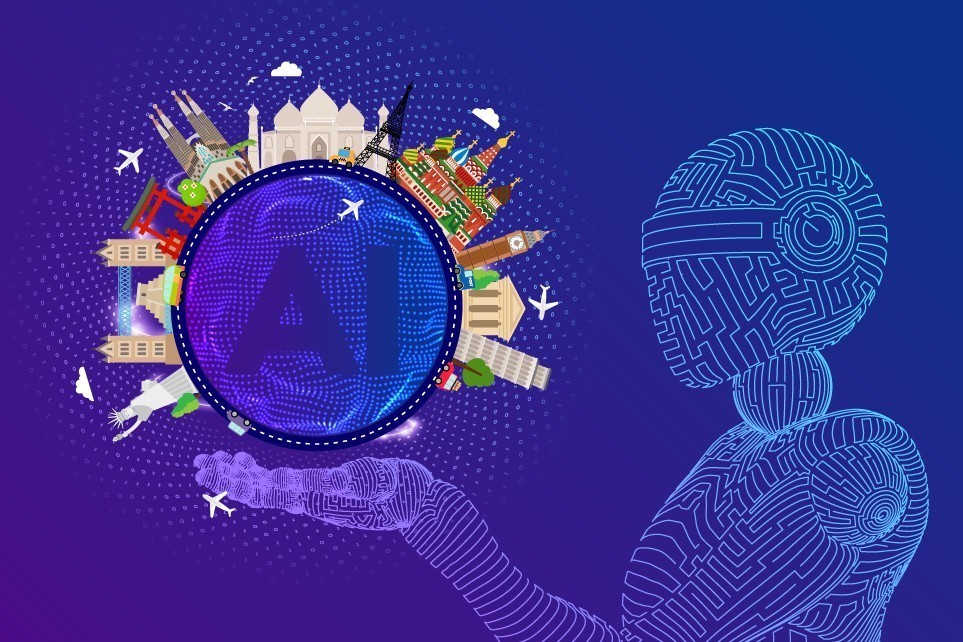The explosive development of artificial intelligence (AI) is revolutionizing the operation of numerous industries, and the world of travel is no exception. The application of AI technologies is not only making travel more convenient but also more efficient and personalized. Travelers can now access information, bookings, and itinerary planning options more easily and quickly. In this blog post, we will explore how AI is transforming travel experiences, from recommendations to dynamic pricing and itinerary planning apps. Discover how you can take advantage of these innovations on your next journey!
Personalized Travel Recommendations
One of the most significant impacts of AI on travel can be seen in the area of personalized recommendations. Machine learning algorithms can analyze individual travel habits, interests, and preferences to provide tailored suggestions. For instance, if someone frequently visits historical sites, AI-powered systems might recommend places such as Heroes' Square, Buda Castle, or even the Acropolis in Athens.
- Personalized hotel and flight recommendations based on previous searches.
- Suggestions for restaurants and activities, such as Michelin-starred dining or local festivals.
- Discounted offers for preferred destinations.
- Enhancing travel experiences through thematic trip recommendations, such as wine tours or wellness retreats.
- Real-time notifications about the best times to visit certain locations to avoid crowds.
Platforms such as Booking.com or Airbnb increasingly use AI to improve user experience and enhance customer satisfaction.
Dynamic Pricing and Cost Efficiency
Dynamic pricing is another key application of AI in travel. AI-based systems analyze real-time data such as demand, weather, events, and travel seasonality to determine ticket and hotel prices. This technology helps airlines and hotels optimize their revenues while enabling travelers to find the best deals.
- Real-time price comparisons to ensure the best deals.
- Flexible date search options showing the cheapest times to travel.
- Bundled bookings that include hotels, flights, and car rentals.
- Discounted last-minute offers to help travelers save money.
- Notifications of price increases or drops to allow for quick decision-making.
Platforms like Hopper use artificial intelligence to predict price changes and recommend the best times to book.
AI-Powered Travel Assistants
AI-powered virtual assistants, such as Google Assistant or Amazon Alexa, elevate the travel experience to a new level. These tools can assist with flight bookings, hotel searches, or even itinerary planning. Imagine organizing an entire trip with just a voice command!
- Reminders and notifications about travel plans, such as flight departures.
- Real-time traffic updates and alternative route suggestions.
- Automatic translations in foreign countries, for example, at restaurants or markets.
- Weather information to prepare for the conditions at your destination.
- Interesting facts and recommendations about places you visit.
For example, if you are visiting Barcelona, AI can help you find the best time to visit the Sagrada Família, while saving time by booking tickets in advance.
Itinerary Planning Applications
AI-powered itinerary planning applications, such as TripIt or Sygic Travel, can automatically organize travelers' schedules. These applications analyze booking information and create logically arranged itineraries that take duration, distances, and individual preferences into account.
- Time-saving through automatic organization, sparing travelers the hassle of complex planning.
- Real-time updates, such as flight delays.
- Personalized suggestions, like hidden gems or less crowded locations.
- Offline maps and routes for planning without internet access.
- Interactive lists of must-see locations and restaurants.
For instance, if you're visiting Tokyo, AI might recommend exploring the Shinjuku Gyoen park or checking out the famous Tsukiji Fish Market.
The Future of AI in Travel
The advancement of AI continues to unlock new opportunities in travel. In the future, AI-powered systems could become even more intuitive and accurate, such as in customizing travel insurance, reducing environmental impacts, or integrating with smart city systems.
- More sustainable travel solutions, such as carbon reduction options.
- Fully automated airport systems to minimize waiting times.
- Autonomous vehicles to simplify transportation.
- AI-powered real-time translators to ease foreign language communication.
- Integrated entertainment options during travel, such as virtual tours.
The possibilities offered by AI are endless, and these innovations will increasingly become part of travelers' lives in the near future.
Conclusion
The impact of artificial intelligence on the world of travel is undoubtedly revolutionary. The technology not only simplifies travelers' lives but also offers new opportunities for industry players to improve services and enhance customer experience. Thanks to AI-based solutions, travel has never been this simple, personalized, and efficient.
If you haven't tried these technologies yet, now is the time to dive in and discover how AI can make your next journey even better!
